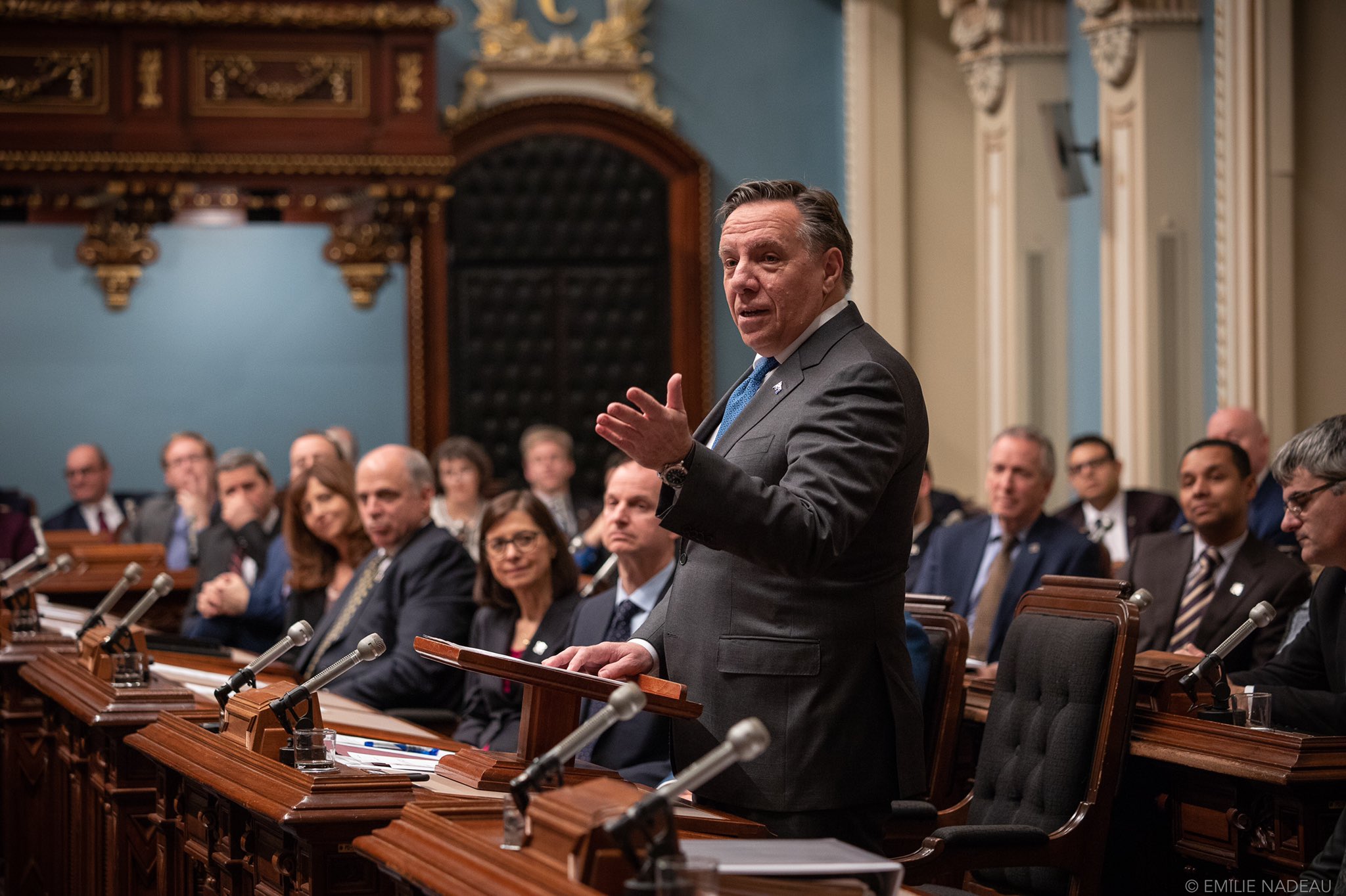Canada News
CN obtains injunction to dismantle rail blockade south of Montreal

Legault told reporters in Quebec City police would dismantle the blockade in St-Lambert as soon as an injunction was granted. (File photo: Emilie Nadeau via francoislegault/Twitter)
ST-LAMBERT, Que. — A blockade on Canadian National Railway tracks in a suburb south of Montreal continued into the evening Thursday despite tough talk from Quebec Premier Francois Legault and a court injunction ordering it to come down.
Legault told reporters in Quebec City police would dismantle the blockade in St-Lambert as soon as an injunction was granted. He said that because the blockade, erected Wednesday, is not on First Nations land, it would be easier for the government to take action.
The blockade “is on Quebec territory. It’s not on the territory of a First Nation,” Legault said Thursday morning.
By the end of the day, he said it was up to police to ensure the barricade comes down. “It’s the job of the police now to have the law respected, to have the injunction respected,” he told reporters in Mirabel, Que.
The blockade in solidarity with Wet’suwet’en hereditary chiefs in British Columbia was erected on CN tracks, and it has disrupted rail service for suburban commuters and for Via Rail travellers between Montreal and Quebec City. CN spokesman Olivier Quenneville confirmed the railway had obtained an injunction ordering an end to the blockade.
At the site, a few dozen protesters — well stocked with supplies, tents, camping gear and firewood — said they plan to stay put as long as RCMP remain on Wet’suwet’en lands. Snow was piled onto tracks, with signs strung across a cord hung between rail signals.
An unidentified spokeswoman, her face covered by a ski mask, defiantly called on more people to join the movement to bring the Canadian economy to a standstill.
“Blockades are emerging every day, blocking critical infrastructure. Governments refuse to listen to the traditional chiefs of Wet’suwet’en who are fighting against a pipeline on their territory. Canada is blocked until further notice,” she said.
She called on “protectors of the water and the land … to block the colonial power — ports, bridges, roads, railways, everywhere, now!”
Earlier another protester, who also didn’t give his name, said the group of several dozen intended to remain until the Wet’suwet’en hereditary chiefs are satisfied their demands have been met.
Federal Public Safety Minister Bill Blair said Thursday the RCMP has offered to move officers away from the area where the traditional leaders of the Wet’suwet’en First Nation have been opposing a pipeline on their territory, but the Quebec protesters said that was not satisfactory.
Blair said Legault and Quebec police forces have jurisdiction over the protest actions south of Montreal.
“It is their responsibility to enforce the injunctions that are obtained,” Blair said. “But I also know those police services, and they are dedicated to finding the most peaceful way to respond to these conflicts.”
In addition to the St-Lambert blockade, railway tracks have been blocked for more than a week on the Mohawk territory of Kahnawake, south of Montreal. Legault said that blockade on Mohawk territory is more challenging because the area has its own police force.
“It’s a First Nation territory, so yes, there is a difference,” the premier said.
In St-Lambert, David Skitt, who said he lives nearby the protest site, got into a respectful but heated argument with a masked protester.
“Thousands of people are going to lose their jobs,” he told reporters afterwards. “They are blocking a railway. I just want this to be settled. I find this unfortunate. I love this city. I find this unacceptable.”





















